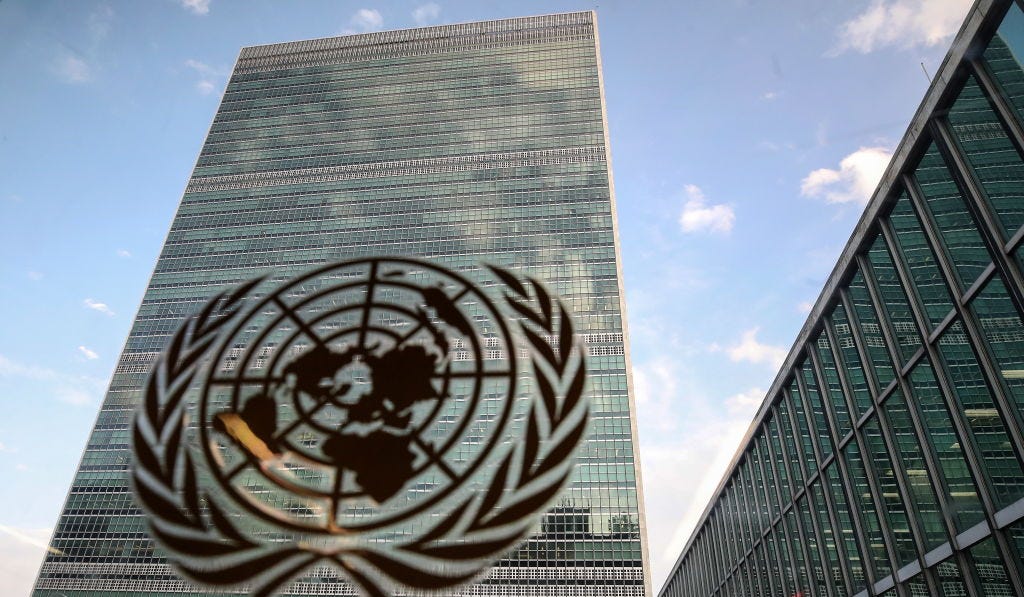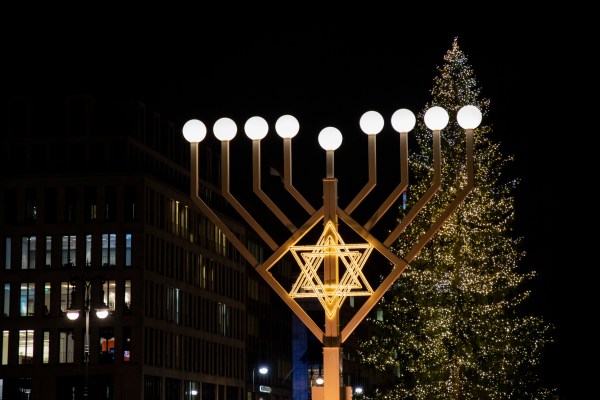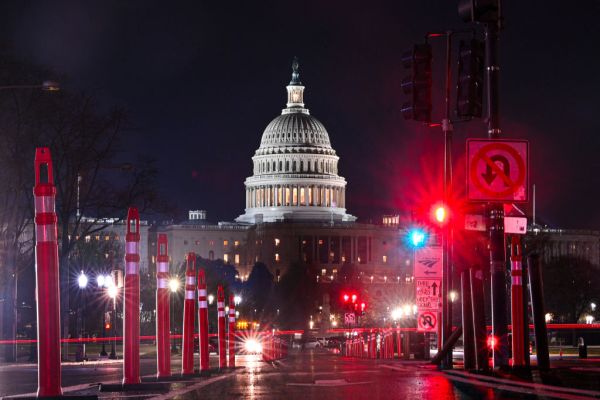As the U.N. Human Rights Council wrapped up its session this week, it passed 13 resolutions dealing with human rights abuses in varying regions of the world: Eritrea (for war crimes in the Ethiopian region of Tigray), Belarus (for ongoing civil society repression), Myanmar (for the ongoing genocide of Rohingya Muslims), and others.
What’s notable about the resolution on Eritrea is that Eritrea is actually a member of the UNHRC. Should an organization with a mission “to work for the protection of all human rights for all people; to help empower people to realize their rights; and to assist those responsible for upholding such rights in ensuring that they are implemented” welcome as members the very states carrying out abuses?
Such cognitive dissonance leads many to question the value of a governing body on human rights. Along with Eritrea, Venezuela, Somalia, Russia, and China are current members of the council. It’s a problem that has plagued the council for years, and even a reorganization (from commission to council) undertaken by U.N. Secretary General Kofi Annan in 2006 has done little to fix the problem.
The U.N. Commission on Human Rights was originally founded in 1946, and produced the Universal Declaration of Human Rights (UDHR) in its first meeting in 1947. Eleanor Roosevelt was the United States delegate to the United Nations General Assembly (UNGA), and served as the first chairperson of the commission. For its first two decades, the commission primarily worked to promote human rights through treaties, including the 1951 conference on refugees and stateless persons and the 1967 Protocol, which removed a geographic restriction on the 1951 treaty.
But criticism mounted early in the new millennium: Sudan gained a seat on the commission in 2003, the same year that—thanks to a rotating regional schedule—Libya was appointed chair of the commission.
In a 2005 address to the commission, Secretary-General Kofi Annan proclaimed the “commission’s ability to perform its tasks has been overtaken by new needs, and undermined by the politicization of its sessions and the selectivity of its work. We have reached a point at which the commission’s declining credibility has cast a shadow on the reputation of the United Nations system as a whole, and where piecemeal reforms will not be enough.”
Annan, who cited the Rwandan genocide of 2004 and the “appalling suffering” in the then-ongoing conflict in Darfur, Sudan, recommended the dissolution of the commission, and creation of the Human Rights Council, which he called “a society of the committed,” one that would be “more accountable and more representative.”
In 2006, the U.N. General Assembly voted to create the U.N. Human Rights Council, with 170 member states voting in favor. Three abstained: Belarus, Iran, and Venezuela. Four voted against the creation of the council, for varying reasons: The United States, Israel, Palau, and Marshall Islands. In his objections, U.S. Ambassador to the U.N. John Bolton clarified that the council did not go far enough for American standards. He did not want the council to “settle for good enough, for a compromise, for merely the best we could do.”
Functionally, the differences between the commission and council have not saved the council from the same deficiencies as its predecessor.
In order to be elected, states commit themselves to upholding human rights, as defined in the UDHR. This is typically through a written memo to the general assembly. The council also created the Universal Periodic Review (UPR), a process in which all U.N. states’ human rights records are reviewed. Nominally, the UPR is “designed to ensure equal treatment for every country when their human rights situations are assessed.” The 47 seats on the council are elected by the 193 member U.N. General Assembly, requiring a majority vote.
Seats on the UNHRC are distributed geographically, intended to be equitable based on world population. Seats are distributed thus:
African states: 13 seats
Asia-Pacific states: 13 seats
Latin American and Caribbean states: eight seats
Western European and other states: seven seats
Eastern European states: six seats
While any U.N. member state can submit its name for an empty seat, the behind-the-scenes process tends to be more complicated. Hillel Neuer, executive director of U.N. Watch, explained in an interview with The Dispatch: “In reality, they agree amongst themselves. So within the regional groups, they try to prevent competition so that there’ll be the same number of candidates for the same number of positions.”
This means, if there are four open seats for Latin America and the Caribbean, the regional states typically decide among themselves which four members will run. The U.N. General Assembly vote is effectively a rubber stamp. Sometimes this is challenged, though rarely, Neuer explains, because regional actors often dissuade additional candidates from stepping forward.
Two seats were open for Latin American and Caribbean states in the 2019 vote to determine three-year terms starting in 2020. Brazil and Venezuela were initially the only two to put themselves forward. Then just months before the vote, Costa Rica directly challenged Venezuela, citing a U.N. report on “grave rights violations.” Venezuela and Brazil won the election, despite the report and Costa Rica’s attempt to challenge.
Paul Gordon Lauren, emeritus professor at the University of Montana and internationally recognized scholar of international law and human rights, told The Dispatch: “Politics is, for better or worse, an integral part of people living with other people.” He continued: “For all the despair we might have over what the Human Rights Council or its predecessor have not been able to accomplish … you have to remember that progress has also been made on other fronts. The U.N. has sent in peacekeepers to protect human rights, they’ve sent investigation teams. And that’s also a result of politics.”
Politics also plays a role in the United States’ involvement with the UNHRC. The United States did not seek membership on the council upon its creation in 2006. Since then, U.S. engagement has fallen on partisan lines: the Bush administration declined, the Obama administration joined, the Trump administration withdrew, and now the Biden administration is engaging.
When the U.S. withdrew in the middle of a three-year term in 2018, U.S. Ambassador to the U.N. Nikki Haley accused the council of being “a cesspool of political bias” that “makes a mockery of human rights” and displays “unending hostility towards Israel.”
Secretary of State Antony Blinken announced in February that the U.S. would once again engage with the UNHRC.
“We recognize that the Human Rights Council is a flawed body, in need of reform to its agenda, membership, and focus, including its disproportionate focus on Israel,” Blinken said. “However, our withdrawal in June 2018 did nothing to encourage meaningful change, but instead created a vacuum of U.S. leadership, which countries with authoritarian agendas have used to their advantage.” The U.S. is currently an “observer,” which means they can speak and submit resolutions (like all members of the UNGA), but do not have voting power.
Notably, despite the decision to engage and the acknowledgement of a disproportionate focus on Israel, the United States did not send a representative to the emergency session in May. The session was primarily focused on Israeli-Hamas conflict, and the U.S. was not present to voice any opinion on the creation of an International Commission of Inquiry on Israel.
“Why an administration that has advocated the utility and importance of engagement, and which could have called out the bias of the council,” failed to attend frustrated Neuer.
The administration has yet to announce whether it intends to run for a seat on the UNHRC.
Does U.S. engagement give legitimacy to a broken system? “It need not,” Neuer argued. If the United States were to engage the full weight of their diplomatic leadership, it has the opportunity to effect genuine change.
“Being gone doesn’t make it better,” Neuer said. Instead, since the UNHRC is not disappearing anytime soon, Neuer says democracies should “fight to stand up for human rights, basic freedoms, and democracy,” as well as “fight dictatorships and speak forthrightly.”
“It is essential not to throw up your hands in complete despair,” Lauren said.
If people did that, there would be no advancement in human rights.” For most of human history, he explained, slavery, torture, abuse, and authoritarianism were common. There was no form of accountability, no redress for victims. Today, victims of atrocity have some options, however imperfect. Lauren called it a “transformation from being an object of international pity, to being a subject of international law.” At least today, for all the faults of the UNHRC, Lauren told The Dispatch, “human rights are openly discussed and violations can be addressed, and in some cases leaders responsible can be held accountable.”







Please note that we at The Dispatch hold ourselves, our work, and our commenters to a higher standard than other places on the internet. We welcome comments that foster genuine debate or discussion—including comments critical of us or our work—but responses that include ad hominem attacks on fellow Dispatch members or are intended to stoke fear and anger may be moderated.
You are currently using a limited time guest pass and do not have access to commenting. Consider subscribing to join the conversation.
With your membership, you only have the ability to comment on The Morning Dispatch articles. Consider upgrading to join the conversation everywhere.